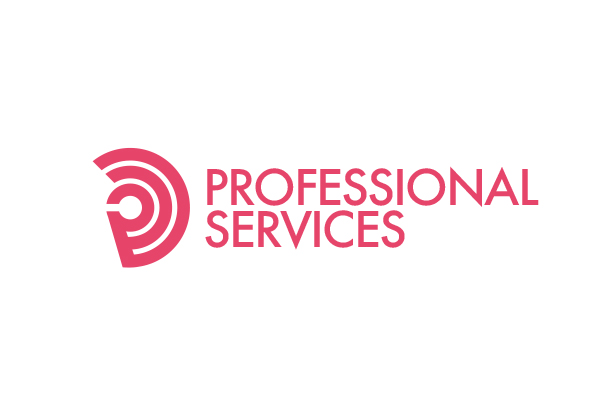
You have come to the right place if you're looking for Austin-based environmental consultants. The Austin area offers a wide variety of services to help with many issues. This includes Astex Environmental Services, Jenkins Environmental Consulting, LLC, Indoor Environmental Consultants, Inc.
Jenkins Environmental Consulting, LLC. (JEC)
Jenkins Environmental Consulting, LLC, began in August 1998. It was formed to assist local government agencies and the industry with compliance. Since then, it has expanded its service area to include a wide range of clients and industries. Its reputation of quality work has contributed greatly to its growth. Today, its clientele includes private agencies, state agencies, residential developers, lending institutions, insurance agencies, and other environmental consulting firms.

Jenkins Environmental Consulting is currently paying an average hourly wage of $74 an hour. However, depending on the job title and department, it can go as low as $65 or as high as $83, according to where you work. The education and experiences of individual employees are also factors that affect the hourly rate.
Astex Environmental Services - AES
Astex Environmental Services provides a wide range of services to meet your environmental consulting needs. These services include Phase I Environmental Site Assessments (PESA) and industrial hygiene. Our experienced professionals are available to assist clients with any number of questions. We understand the importance environmental management and have the experience necessary to meet your needs.
Indoor Environmental Consultants, Inc.
IEC, a professional consulting company, specializes in indoor air quality and mold assessments. It also offers LEED certification to buildings that promote indoor quality. IEC offers services such as indoor air quality inspections, HVAC hygiene assessments and construction observation. IEC was established in Texas by a group that includes experienced building scientists and engineers as well microbiologists. IEC is quickly gaining popularity throughout Texas and the Gulf Coast. Hollis H. Horner, principal IAQ consultant at the firm, leads its team of professionals. Rod Marett is James Reid and Natalie Cancino (the firm's office manager) are among the other members of staff.

The company was established in 1993 in Austin, Texas. It has been around for 21 year and generates $1.4 million annually. It employs 12 people in its single location.
FAQ
What skills will I need to be a consultant?
A consultant should have strong analytical skills as well as interpersonal skills. This is vital because you may not understand the scope of your work. You must learn how to manage people and solve problems quickly.
You also need to have excellent communication skills. Most clients expect to hear back within 24 hours. If they don’t hear back, they assume that you aren’t interested. It is important to keep them updated and make sure they fully understand the situation.
What qualifications are necessary to become a consultant
It doesn't suffice to hold an MBA. You also need to be able and willing to work as a business advisor. A minimum of two years' experience in consulting, training and/or advising a major company is necessary.
Your experience in strategy development projects requires that you work closely with senior managers. You will need to feel comfortable communicating ideas to clients and getting their support.
A professional qualification exam, such as the Certified Management Consultant (CMC), of the Chartered Management Institute (CMI), is also required.
Is it necessary to pay taxes on consulting income
Yes. Taxes will be charged on consulting profits. It depends on how much income you make per year.
If you are self employed, you can claim expenses in addition to your salary. This includes rent and childcare.
But, interest payments on loans, vehicle and equipment depreciation will not be allowed to be deducted.
If you earn less than PS10,000 per year, 25% can be claimed back.
However, you might still have to pay tax if your earnings are higher than the threshold. This depends on whether you are an employee or contractor.
The tax system for employees is PAYE (pay-as-you earn), while VAT is applied to contractors.
What can I expect of my consultant?
When you choose your consultant, they should respond within a few working days. They will typically ask for information about the company, such as its mission, goals. products and services. budget. After that, they will send you a proposal detailing the scope of work, expected time frame, fees and deliverables.
If all goes according to plan, the two sides will sign a written deal. The type of relationship between them (e.g. employer-employee or employer-independent contractor) will determine the terms of the contract.
If everything goes well, the consultant should start work immediately. The consultant will have full access to your files and resources. You'll also have access to their skills and knowledge.
Don't think that consultants are experts. It takes practice and hard work to become an expert in the field you are consulting. Do not expect your consultant to be an expert in every aspect of your business.
How did modern consultancy come about?
The first consultants were accountants that helped companies manage finances. They were known as "accounting consults" because they are highly skilled in the management of financial information. This role quickly expanded to include human resource management.
The French word for "to advice" was the inspiration behind the term "consultant." This was used by businessmen as a way to describe someone who could provide guidance on running an organization. In fact, most business owners today still use the word consultant when referring to any kind of professional advisor.
What is the difference of a consultant versus an advisor?
An advisor gives information on a topic. Consultants offer solutions to problems.
Consultants work directly for clients to help achieve their goals. The advisor provides indirect advice through books, magazines lectures, seminars, and the like.
What industries employ consultants?
There are many types of consultants. There are many types of consultants. Some specialize in one type of business, while others can handle multiple areas.
Some consultants work only for private companies, while others represent large corporations.
Some consultants also work internationally and can help companies around the globe.
Statistics
- 67% of consultants start their consulting businesses after quitting their jobs, while 33% start while they're still at their jobs. (consultingsuccess.com)
- Over 62% of consultants were dissatisfied with their former jobs before starting their consulting business. (consultingsuccess.com)
- On average, your program increases the sales team's performance by 33%. (consultingsuccess.com)
- So, if you help your clients increase their sales by 33%, then use a word like “revolution” instead of “increase.” (consultingsuccess.com)
- "From there, I told them my rates were going up 25%, this is the new hourly rate, and every single one of them said 'done, fine.' (nerdwallet.com)
External Links
How To
How To Find The Best Consultant?
First, ask yourself what kind of consultant you are looking for. Before you start looking for someone to work with, it's important that you know your expectations. It is important to make a list with all the requirements you have for a consultant. This list could include technical expertise, project management skills, communication skills and availability. Once you have identified your requirements, you might consider asking friends and colleagues to recommend you. Ask them if they had any bad experiences with consultants previously and see how their recommendations compare with yours. You can also do some online research if you don't know of any. There are many websites, such as LinkedIn, Facebook, Angie's List, Indeed, etc., where people post reviews of their previous work experiences. Consider the ratings and comments of other candidates and use these data to start your search for potential candidates. Once you have narrowed down your list, reach out to potential candidates and set up an interview. Talking through your requirements during the interview is a good idea. Ask them questions about how they can assist you in achieving those goals. It doesn't matter if they were recommended to your company; all that matters is that they are able to understand your business goals and show how they can help.